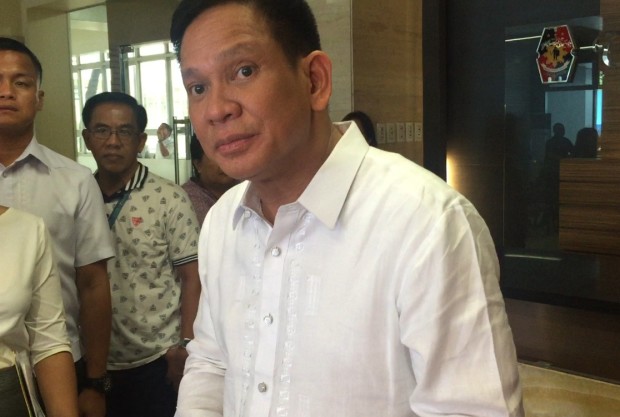
Outgoing Department of Interior and Local Government Secretary Mel Senen Sarmiento. JULLIANE LOVE DE JESUS/INQUIRER.net
THE campaign during the May 9 elections got in the way of the government’s efforts to pin down local politicians involved in illegal drugs, outgoing Interior Secretary Mel Senen Sarmiento said on Monday.
Sarmiento said the Department of the Interior and Local Government (DILG) had been monitoring local government officials since last year but he admitted that it had been difficult for the agency to find solid proof because the politicos were “too busy convincing the people to vote for them.”
President-elect Rodrigo Duterte told lawmakers in a meeting in Panacan, Davao City last June 8 that there were at least 35 local executives who are protecting drug operations in their areas.
Sarmiento said he did not have enough time to confirm the involvement of the officials in the drug trade because he was appointed as Interior Secretary when all officials were busy campaigning.
“Nag-surveillance ka na umabot sa puntong nangangampanya na sila. What you can monitor is them campaigning. So napakahirap and most of their time were already spent with their people trying to convince them to vote for them,” Sarmiento told reporters on Monday, his last working day at Camp Crame.
“Be reminded that when I assumed office in September of last year, everyone was busy campaigning already. It was kinda hard for us to even sit down with our local chief executives to talk about certain programs because they would say ‘busy na kami mangampanya ngayon eh,’” Sarmiento said.
President Aquino tapped the former Samar district representative to replace Mar Roxas as DILG Secretary in September last year before Roxas declared his bid for presidency. Sarmiento also had to leave his post as secretary general of the erstwhile ruling Liberal Party.
But Sarmiento declined to specify how many local officials are under surveillance. He, however, said there are reports that these local executives are allowing drug laboratories to operate in their areas.
He pointed out that until there is no prima facie evidence against the local officials, they cannot prosecute them.
“We have to validate it if it’s politically motivated or there’s some truth to it,” Sarmiento added.